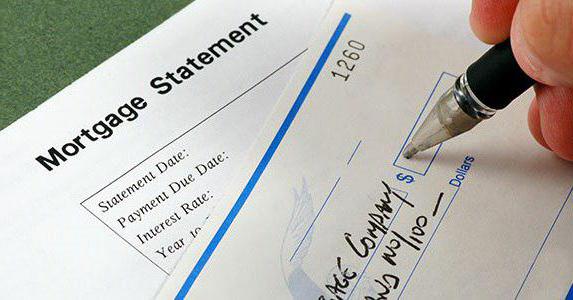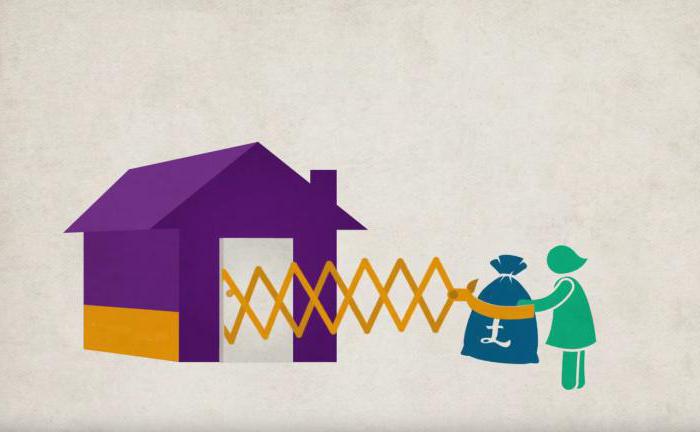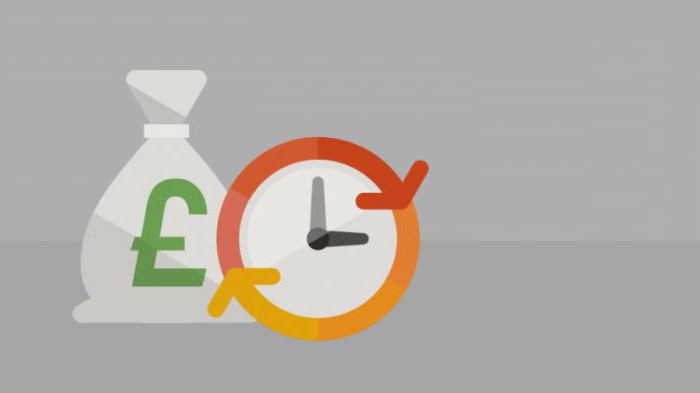One of the most important and common goals of an adult is to own a home. Well, we really want to live for our pleasure, to have a personal living space, where you can do whatever you want and do not report to anyone. Most often, there is one way to dream - a mortgage. The amounts here are still substantial. I would like to save at least something and the question naturally arises of how to make a return on interest on a mortgage with early repayment. Is it real? How to do it?
Where does it all start?
The desire to purchase an apartment appears in almost every adult who wants to live their own way. Of course, there are people who like to live with relatives, with parents or with friends. However, this “general” version of adulthood seems immature and temporary. And if there is no accumulation or unexpectedly fallen inheritance, then there is only one way out - to take a mortgage. The choice of a potential borrower is surprisingly large, each bank offers different mortgage terms. In Sberbank, for example, you can take a loan for up to 30 years. The percentage is now floating - from eight for housing in new buildings to thirteen for the purchase of an apartment on the secondary. Of course, there is no fixed percentage in any case. It always depends on the social status, age and number of borrowers, on the size of the down payment. Mortgage conditions at Sberbank are suitable for you if you are a citizen of a country of working age with permanent registration. By the way, it will be mandatory to take out real estate insurance against the risks of death and damage. But life and health insurance is issued at will, but if you refuse, you can increase the percentage of the loan.
Is it necessary to extinguish ahead of schedule?
If you take a mortgage, you are unlikely to have a substantial sum of money on hand. But you assume that for a certain period of time you can pay off the loan. Perhaps you even take a mortgage with a margin, hoping to repay it ahead of schedule. But is the game worth the candle in this case? Many people take a loan for the maximum term, hoping that a new leap in currency will allow them to discount the remaining debt. Agree, the prospects are rather vague. Maybe it’s better to get together and repay the loan ahead of schedule? This is a rational option only when you pay with differentiated payments. Moreover, the payment consists of the main debt and interest accrued on the total amount. If you deposit a large amount on the account, then interest is charged on a significantly reduced balance.
In the case when the monthly payments are annuity, the amount is always the same, but in the early years it mainly consists of interest, and by the end of the loan term the ratio of principal and interest changes. In this option, early repayment will be an unnecessary decision. So focus on the maximum mortgage terms and calculate your strength for a possible early repayment of the loan.
Full and partial
Early repayment can be full and partial. In the first option, the client immediately repays the entire loan amount. There are nuances, since the bank is, of course, not particularly profitable. Often banks declare in the contract a period before which the client cannot repay the debt without penalties. Be attentive to this clause in the contract. But to partial repayments most often there are no restrictions.At the same time, the bank can lower the interest rate and reduce the total cost of the loan or only reduce the amount of debt. The larger the amount of the contribution, the more active is the recalculation of interest upon early repayment of the mortgage. Therefore, it is better to make large contributions not every month, but when a substantial amount is accumulated. For this purpose, you can open a contribution with capitalization of interest.
The essence of annuity payments
So, it has already been said that repaying a loan ahead of schedule is beneficial when you have differentiated payments. But with the annuity, you can relax and calmly pay all 10-20 years. However, everything happens in life, and now you become the owner of a solid inheritance or an unexpected prize. Of course, I want to get rid of debt and close the mortgage. However, excessively paid interest upon early repayment of the mortgage becomes, in fact, an unreasonable enrichment of the bank. After all, you paid interest at the beginning of the term and could already close the lion's share. What to do? Let it be as it is? No, no, a significant repayment of interest on a mortgage upon early repayment is possible. The borrower also has this right when refinancing. 
Guide to action
If you have not paid the loan before the due date, then the interest is paid according to the contract. However, if you managed in advance, then it is quite possible to return interest on a mortgage with early repayment. Simply put, the borrower can take back the money that he overpaid the bank in advance. After all, he did not use the loan amount for a certain period. Thus, the legitimately paid interest - only those that were levied during the period of use of funds from the date of the loan and up to full repayment. If the client did not use the money, then it is illegal to charge interest on him.
Some customers quite reasonably suspect that banks are deceiving them in something. Sometimes they are wise with contracts, sometimes they include a number of additional services. But far from everyone can evaluate the degree of deception. However, it is possible to calculate the amount that is realistic to recover after a loan is paid. To do this, take the amount of all accrued interest for the full term and calculate the part that falls on the period remaining until the actual repayment. 
We follow the examples
So, how to return interest on early repayment of a mortgage? You need to act promptly and thoughtfully. To get started, check out the payment schedule, where the total amount of interest should be indicated. If your loan is designed for a long term, then the amount of repayment may be significant. Consider the situation with examples. Suppose you took money to buy an apartment at the price of two million rubles for a period of 20 years. The rate you were offered at 13.75%. With full payment, you will give the bank 3.9 million rubles of interest. If you repay the amount, say, in three years, then the interest repayment on the mortgage (with early repayment at Sberbank) will be approximately 230 thousand rubles, or 26% of the total annuities paid for this period.
According to statistics, in 2011, borrowers paid off mortgages totaling 174 billion rubles. This is even without taking into account consumer lending. This is a large amount, and, accordingly, many customers presented banks with claims for the return of overpaid interest upon early repayment of the mortgage.
Through the court
Do not be afraid to return your money. This is absolutely legal, as confirmed by the Supreme Arbitration Court. Recently, a review of judicial practice was published, where explanations were given on how the interest on the mortgage is repaid in case of early repayment. Judicial practice shows that customers who are exempted from loan debt have the right to return. By the way, the decisions of the Supreme Arbitration Court contain information that the collection of various commissions from borrowers is illegal. This statement caused a real flurry of lawsuits against banks and significantly changed the rules of the game in the consumer lending market.But the information on the return of interest so far caused only a small response.
Why are there so few who want to return the overpaid interest? In fact, interest is advanced in an annuity. Even if you paid a loan for a year with a total term of ten years, then in the first months you paid such interest as if you had used the money for several years. You can calculate the correctly paid interest using an ordinary calculator, knowing the loan rate and the number of months when the funds were actually used. Here you can give an example, let you pay 250 rubles for three months under an annual contract. And for a shorter period that you were a debtor, only 200 rubles would run in. In this case, the bank must return 50 rubles to you, since they were paid in advance. 
Annuity Nuances
However, doubts arise whether everything is so simple, because when drawing up the contract, the client agreed that he initially paid interest. Would the bank rely on this if it wanted to return part of the amount? Here the bank cannot go against the truth of the Civil Code, which clearly states that the client should pay only if he used the money. Moreover, statistics show that for long-term loans, interest repayments can result in a serious amount. You can pay five years instead of twenty. Otherwise, the situation is simply dishonest, because the client gave money for a quarter of the term, and paid for the whole. But it can be difficult to figure out these wilds yourself, therefore it is better to involve a qualified lawyer in the case.
The nuances of annuity are also important in situations with legal entities. For commercial organizations, early repayment of the loan is prohibited, but at the initiative of the borrowers themselves. Refunds can only be made if the bank is afraid of deterioration in the security of the loan and collects the debt ahead of schedule.
In fact
We will analyze, by points, what you are entitled to and how to return interest upon early repayment of a mortgage. If you repay the loan in full and close the contract, you gain a substantial amount and remove the burden of debt for many years. For example, you have a loan for 10 years in the amount of one million rubles. For simplicity of calculation, we take a small interest rate - 10%. On the chart, you can calculate that each month you will pay 0.8 percent of the total debt. A schedule should be given to you at each installment. Interest is shown in one column and total debt in another. For the first year, you will give interest at 97 and a half thousand rubles, and the total overpayment according to the schedule will be about 580 thousand. Not the most promising prospect, even at a low interest rate. You can double-check the percentage paid if you divide the annual overpayment by the total. Total we will receive more than 16 percent. If you repay the loan for the year, then you will pay these upfront 6% in advance and can claim back. In ruble terms, this is approximately 35 thousand rubles. This kind of return can please you.
However, the pitfalls are trying to create the banks themselves, which often prescribe in the contracts a line on the prohibition of return. In the document you can find a note on the mandatory payment of accrued interest in full on the date of early fulfillment of obligations. In fact, this is a violation of the rights of the borrower, even if he inadvertently signed such an agreement. There is every reason to go to court and demand compensation. The fact that the state and the arbitration court in such situations remain on the side of the borrower is encouraging.
Better a bird in the hands
If you don’t have the full amount and are not expected now, then you can pay off the debt with lump-sum payments. Let's say you have a modest loan amount. Recall that a mortgage can be taken from 300 thousand rubles. If you need only 400 thousand, then it makes no sense to stretch payments for life. Although the term can be chosen at your discretion. But here it is better not to be smart and to choose differentiated payments. Let's say the term is chosen at 20 years.Moreover, a monthly payment can be a ridiculous amount of two, four or five thousand rubles. And you can pay 20-25 thousand per month. The question arises: with early repayment, are mortgages recounted interest? Yes, the percentage is changing, although not as fast as we would like. In practice, it all depends on you and the size of your payments. Every month on the graph you can observe a decrease in the total debt, the size of the monthly payment and interest rate. However, the term of the mortgage remains unchanged until the moment when you make the last payment and close the loan.
On the road
It remains to sort out another fairly common question that arises among experienced lenders. How are interest calculated on early repayment of a mortgage? With differentiated payments, the percentage changes monthly. With annuities, the percentage is calculated upon payment and closing of the reporting period, although no one forbids you to make calculations on a monthly basis. But there is another category of interest that you can get with early or timely repayment of the mortgage. This is the so-called tax deduction. By law, those citizens who first acquire an apartment in a mortgage are entitled to a tax deduction. You can get it both in the tax and in the workplace. This amount consists of two parts, where there is 13% of the total mortgage and 13% of the amount of interest paid. The part that comes from the amount of the debt, you can return immediately, and it will not change. There is a limit on the amount - a maximum of two million rubles. In this option, you can return 260 thousand rubles. Perhaps this is not enough for those people who bought property for seven-figure amounts, but still such a "rollback" is very pleasant.
But the second component of the deduction is variable, since it is impossible to predict in advance how much interest you will pay. As a result, you can fully withdraw this amount at the time of closing the loan, when the interest is paid off in full. If you take the tax deduction at work, then you will not be charged 13% of the salary exactly until they cover the constant and variable part of the amount sought. Alas, the tax deduction can only be obtained once in a lifetime, so the second mortgage will do without such a bonus bonus at the end. Accordingly, it is better to think about which purchase of real estate to make the most profitable. Still, the larger the amount invested, the greater will be the return.
